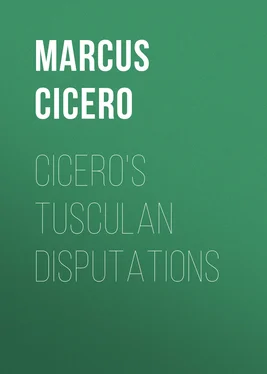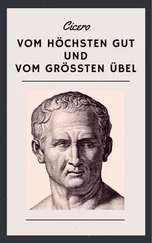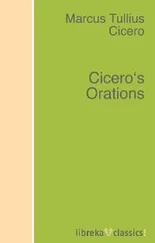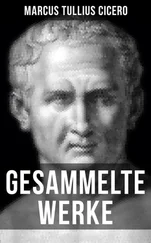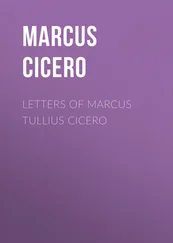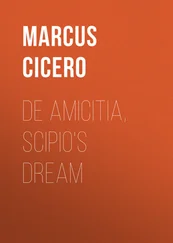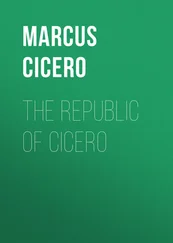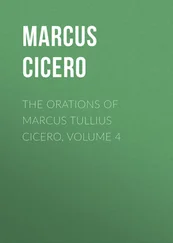Marcus Cicero - Cicero's Tusculan Disputations
Здесь есть возможность читать онлайн «Marcus Cicero - Cicero's Tusculan Disputations» — ознакомительный отрывок электронной книги совершенно бесплатно, а после прочтения отрывка купить полную версию. В некоторых случаях можно слушать аудио, скачать через торрент в формате fb2 и присутствует краткое содержание. Издательство: Иностранный паблик, Жанр: foreign_antique, Философия, foreign_edu, на английском языке. Описание произведения, (предисловие) а так же отзывы посетителей доступны на портале библиотеки ЛибКат.
- Название:Cicero's Tusculan Disputations
- Автор:
- Издательство:Иностранный паблик
- Жанр:
- Год:неизвестен
- ISBN:нет данных
- Рейтинг книги:3 / 5. Голосов: 1
-
Избранное:Добавить в избранное
- Отзывы:
-
Ваша оценка:
- 60
- 1
- 2
- 3
- 4
- 5
Cicero's Tusculan Disputations: краткое содержание, описание и аннотация
Предлагаем к чтению аннотацию, описание, краткое содержание или предисловие (зависит от того, что написал сам автор книги «Cicero's Tusculan Disputations»). Если вы не нашли необходимую информацию о книге — напишите в комментариях, мы постараемся отыскать её.
Cicero's Tusculan Disputations — читать онлайн ознакомительный отрывок
Ниже представлен текст книги, разбитый по страницам. Система сохранения места последней прочитанной страницы, позволяет с удобством читать онлайн бесплатно книгу «Cicero's Tusculan Disputations», без необходимости каждый раз заново искать на чём Вы остановились. Поставьте закладку, и сможете в любой момент перейти на страницу, на которой закончили чтение.
Интервал:
Закладка:
A. How can it, after what I now know?
M. Do you ask how it can? There are crowds of arguers who contradict this; and those not only Epicureans, whom I regard very little, but, somehow or other, almost every man of letters; and, above all, my favorite Dicæarchus is very strenuous in opposing the immortality of the soul: for he has written three books, which are entitled Lesbiacs, because the discourse was held at Mitylene, in which he seeks to prove that souls are mortal. The Stoics, on the other hand, allow us as long a time for enjoyment as the life of a raven; they allow the soul to exist a great while, but are against its eternity.
XXXII. Are you willing to hear then why, even allowing this, death cannot be an evil.
A. As you please; but no one shall drive me from my belief in mortality.
43 M. I commend you, indeed, for that; though we should not be too confident in our belief of anything; for we are frequently disturbed by some subtle conclusion. We give way and change our opinions even in things that are more evident than this; for in this there certainly is some obscurity. Therefore, should anything of this kind happen, it is well to be on our guard.
A. You are right in that; but I will provide against any accident.
M. Have you any objection to our dismissing our friends the Stoics—those, I mean, who allow that the souls exist after they have left the body, but yet deny that they exist forever?
A. We certainly may dismiss the consideration of those men who admit that which is the most difficult point in the whole question, namely, that a soul can exist independently of the body, and yet refuse to grant that which is not only very easy to believe, but which is even the natural consequence of the concession which they have made—that if they can exist for a length of time; they most likely do so forever.
M. You take it right; that is the very thing. Shall we give, therefore, any credit to Pauæstius, when he dissents from his master, Plato? whom he everywhere calls divine, the wisest, the holiest of men, the Homer of philosophers, and whom he opposes in nothing except this single opinion of the soul’s immortality: for he maintains what nobody denies, that everything which has been generated will perish, and that even souls are generated, which he thinks appears from their resemblance to those of the men who begot them; for that likeness is as apparent in the turn of their minds as in their bodies. But he brings another reason—that there is nothing which is sensible of pain which is not also liable to disease; but whatever is liable to disease must be liable to death. The soul is sensible of pain, therefore it is liable to perish.
XXXIII. These arguments may be refuted; for they proceed from his not knowing that, while discussing the subject of the immortality of the soul, he is speaking of the intellect, which is free from all turbid motion; but not of those parts of the mind in which those disorders, 44anger and lust, have their seat, and which he whom he is opposing, when he argues thus, imagines to be distinct and separate from the mind. Now this resemblance is more remarkable in beasts, whose souls are void of reason. But the likeness in men consists more in the configuration of the bodies: and it is of no little consequence in what bodies the soul is lodged; for there are many things which depend on the body that give an edge to the soul, many which blunt it. Aristotle, indeed, says that all men of great genius are melancholy; so that I should not have been displeased to have been somewhat duller than I am. He instances many, and, as if it were matter of fact, brings his reasons for it. But if the power of those things that proceed from the body be so great as to influence the mind (for they are the things, whatever they are, that occasion this likeness), still that does not necessarily prove why a similitude of souls should be generated. I say nothing about cases of unlikeness. I wish Panætius could be here: he lived with Africanus. I would inquire of him which of his family the nephew of Africanus’s brother was like? Possibly he may in person have resembled his father; but in his manners he was so like every profligate, abandoned man, that it was impossible to be more so. Whom did the grandson of P. Crassus, that wise and eloquent and most distinguished man, resemble? Or the relations and sons of many other excellent men, whose names there is no occasion to mention? But what are we doing? Have we forgotten that our purpose was, when we had sufficiently spoken on the subject of the immortality of the soul, to prove that, even if the soul did perish, there would be, even then, no evil in death?
A. I remembered it very well; but I had no dislike to your digressing a little from your original design, while you were talking of the soul’s immortality.
M. I perceive you have sublime thoughts, and are eager to mount up to heaven.
XXXIV. I am not without hopes myself that such may be our fate. But admit what they assert—that the soul does not continue to exist after death.
A. Should it be so, I see that we are then deprived of the hopes of a happier life.
45 M. But what is there of evil in that opinion? For let the soul perish as the body: is there any pain, or indeed any feeling at all, in the body after death? No one, indeed asserts that; though Epicurus charges Democritus with saying so; but the disciples of Democritus deny it. No sense, therefore, remains in the soul; for the soul is nowhere. Where, then, is the evil? for there is nothing but these two things. Is it because the mere separation of the soul and body cannot be effected without pain? But even should that be granted, how small a pain must that be! Yet I think that it is false, and that it is very often unaccompanied by any sensation at all, and sometimes even attended with pleasure; but certainly the whole must be very trifling, whatever it is, for it is instantaneous. What makes us uneasy, or rather gives us pain, is the leaving all the good things of life. But just consider if I might not more properly say, leaving the evils of life; only there is no reason for my now occupying myself in bewailing the life of man, and yet I might, with very good reason. But what occasion is there, when what I am laboring to prove is that no one is miserable after death, to make life more miserable by lamenting over it? I have done that in the book which I wrote, in order to comfort myself as well as I could. If, then, our inquiry is after truth, death withdraws us from evil, not from good. This subject is indeed so copiously handled by Hegesias, the Cyrenaic philosopher, that he is said to have been forbidden by Ptolemy from delivering his lectures in the schools, because some who heard him made away with themselves. There is, too, an epigram of Callimachus 20 20 The epigram is, Εἴπας Ἥλιε χαῖρε, Κλεόμβροτος Ὥμβρακιώτης ἥλατ’ ἀφ’ ὑψηλοῦ τείχεος εἰς Ἀΐδην, ἄξιον οὐδὲν ἰδὼν θανάτου κακὸν, ἀλλὰ Πλάτωνος ἓν τὸ περὶ ψύχης γράμμ’ ἀναλεξάμενος. Which may be translated, perhaps, Farewell, O sun, Cleombrotus exclaim’d, Then plunged from off a height beneath the sea; Stung by pain, of no disgrace ashamed, But moved by Plato’s high philosophy.
on Cleombrotus of Ambracia, who, without any misfortune having befallen him, as he says, threw himself from a wall into the sea, after he had read a book of Plato’s. The book I mentioned of that Hegesias is called Ἀποκαρτερτερῶν, or “A Man who 46starves himself,” in which a man is represented as killing himself by starvation, till he is prevented by his friends, in reply to whom he reckons up all the miseries of human life. I might do the same, though not so fully as he, who thinks it not worth any man’s while to live. I pass over others. Was it even worth my while to live, for, had I died before I was deprived of the comforts of my own family, and of the honors which I received for my public services, would not death have taken me from the evils of life rather than from its blessings?
Интервал:
Закладка:
Похожие книги на «Cicero's Tusculan Disputations»
Представляем Вашему вниманию похожие книги на «Cicero's Tusculan Disputations» списком для выбора. Мы отобрали схожую по названию и смыслу литературу в надежде предоставить читателям больше вариантов отыскать новые, интересные, ещё непрочитанные произведения.
Обсуждение, отзывы о книге «Cicero's Tusculan Disputations» и просто собственные мнения читателей. Оставьте ваши комментарии, напишите, что Вы думаете о произведении, его смысле или главных героях. Укажите что конкретно понравилось, а что нет, и почему Вы так считаете.
